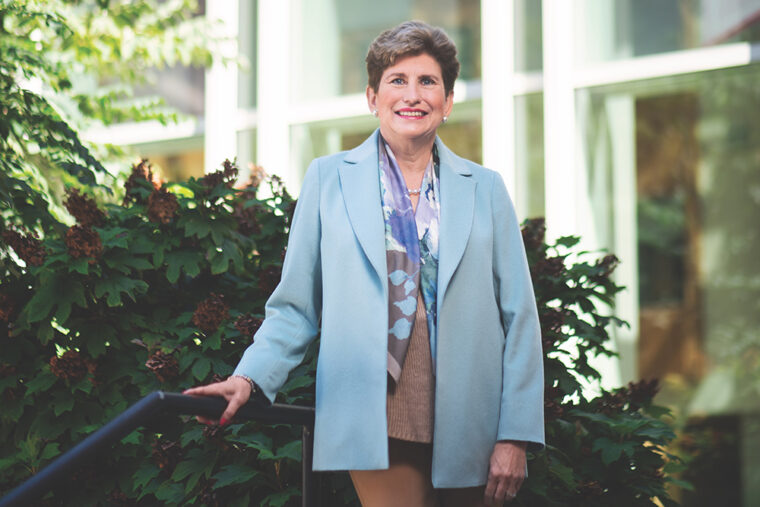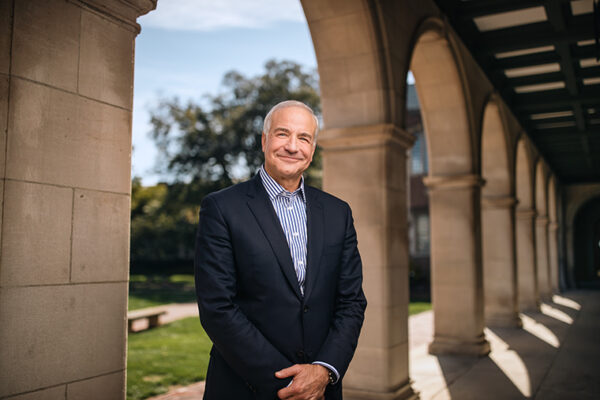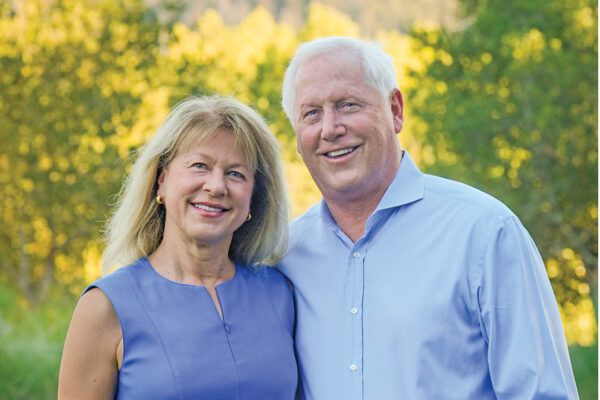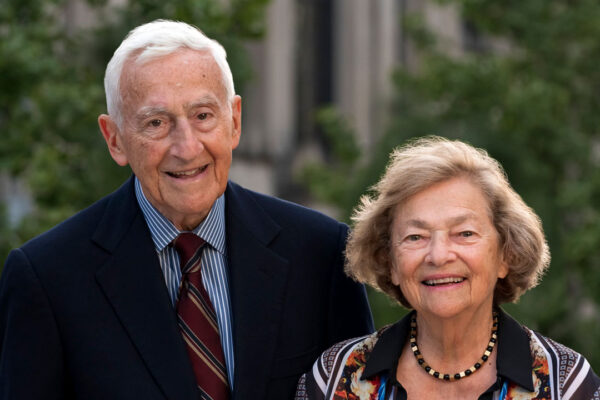When Merry Mosbacher, MBA ’82, retired from financial services firm Edward Jones in 2019, she was the most tenured woman partner in the company. Her 38-year career spanned investment banking, insurance and annuity products, and diversity and inclusion. “What I did at Jones wasn’t work; it was fun,” she says. “When you can get an education that allows you to discover your passions and then find a career that aligns with those passions, that’s when you become successful.”
Mosbacher deeply appreciates the power of a Washington University education, as do her sons, J.T., BArch ’10, MBA ’15, and Michael, BS ’12, MBA ’21, who have followed in her footsteps, entering the finance sector. Now, as co-chair of Make Way: Our Student Initiative, a universitywide fundraising effort focused on removing barriers to a WashU education, she is helping create a best-in-class student experience so future generations can discover their own passions and forge distinct paths to success.
Throughout the past four decades, Mosbacher has loyally given back to the university. A longtime volunteer leader, she served as president of the William Greenleaf Eliot Society, rallying financial support for the university, while strengthening WashU’s connections with graduates. Over the years, she and her husband, Jim, have been deeply engaged at Olin Business School, providing generous gifts for scholarships and facilities there.
How did you launch your career?
My entire career began with an internship. During the winter of 1981, I was working toward an MBA at WashU, and I saw a notice on campus that Edward Jones had an internship available. I threw my name in the hat and was one of three people selected for an interview. The first question they asked me was, “What do you know about investment banking?” My answer was, “I don’t know anything, but I’m willing to learn.” That’s what got me the job, and I never left.
I think internships are critical for today’s students because they teach them how to apply their learning in the classroom to the real world. Undergraduates in particular need support to attain internships because they have been steeped in academic theory and may not know where to start in terms of access.
Jim and I are delighted that we can make a difference in this area through our recent pledge for paid internships via the Gephardt Institute for Civic and Community Engagement. It’s a win-win: Students will gain experience at local nonprofits, and both the charities and the St. Louis area will benefit.
Why help lead Make Way?
I am immensely proud to be affiliated with an institution that is increasing access to a world-class education, and I am excited to help execute this vision. Education is foundational to a person’s future. It’s the key that unlocks many of life’s greatest opportunities. WashU’s move to need-blind admissions in 2021 was a huge step toward this goal, and Make Way is another vital step. We must provide students with adequate financial resources so they can excel once they’ve made it through the door.
Another goal of Make Way is enhancing the student experience, which encompasses everything from health and well-being to leadership and career development, as well as internship opportunities. All students should feel a sense of belonging and have access to meaningful learning outside the classroom as part of their college experience.
Why do you pay it forward to WashU?
My father died when I was 8 years old. My mom, at the age of 40, found herself having to raise two children — my 7-year-old sister and me — and we didn’t have a lot of financial resources. Although she went back to work, she was always a volunteer. So I grew up in a household where giving of our time was really important. I learned early on to raise my hand.
One of the main reasons Jim and I choose to give our time and treasure to WashU is because we are very invested in the St. Louis community, and we’re proud of what the university does for the city.
Through Make Way, we are making progress toward fulfilling the chancellor’s commitment to being “in St. Louis, for St. Louis.” Our investment in WashU is, in part, an investment in the excellence of the broader St. Louis region.
What hopes do you have for WashU students?
I want students to find their passions and translate them into meaningful careers when they leave. And it is my hope they will pay it forward, too, recognizing that someone invested in them and that they feel inspired to give back as well when the time is right.
Jim and I are both first-generation college graduates. It’s our expectation that when someone lifts you up, you come back and support someone else. It’s a beautiful, virtuous cycle.



